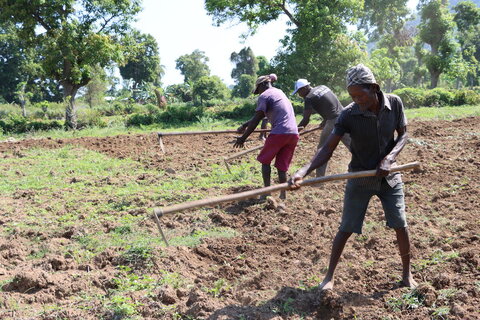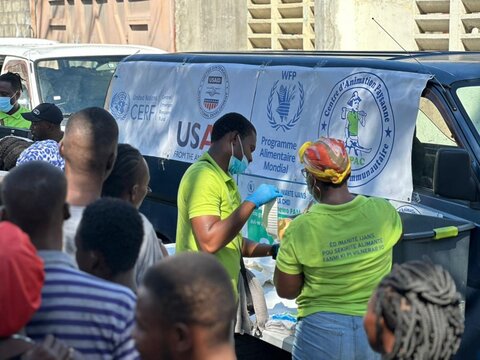Haiti and coronavirus: It’s not just the food, it’s feeling safe

The village of Grande Rivière du Nord owes its name to the stream that gently splits it into two shores. But in the last two years, not much water has fallen from the sky, and most harvests were lost. Now with COVID-19, families bear the brunt of a slowdown in economic activity, movement restrictions and sharp increases in the price of food and basic necessities.
By far the poorest country in Latin America and the Caribbean, Haiti has been repeatedly hit by disasters and extreme weather events in the last ten years and is now engulfed in a protracted economic and social crisis. Almost 40% of the population (4.1 million people) battles with food insecurity, or the daily worry of finding enough to eat. As the number of hungry people across the region could as much as triple as a result of the COVID-19 pandemic, it is estimated that up to 1.6 million Haitians may be suffering from severe hunger — skipping meals, selling their possessions to survive, or facing malnutrition.
At this particularly challenging time, the World Food Programme (WFP) is supporting people in Grande Rivière du Nord by distributing cash handouts, funded by the European Union, which can be spent on whatever they need most.
Six women residents explain what this assistance means to them.
Gracelene

Today Gracelene woke up at dawn and walked past the fields where she often picks leaves and herbs to sell on the streets. She is going to the WFP cash distribution, where she will receive 8,000 gourdes (US$75) for the third time in three months.
‘Before we received assistance, we ate whatever we found'
For the WFP distribution, thousands of villagers gather at a school site rearranged for the occasion with hand-washing stations, thick chalk circles to mark social distance, and boxes of coloured face masks that are distributed to every attendee.
Keeping her distance in one of the lines, Gracelene patiently waits for her cash handout. "Before we received assistance, we ate whatever we found," she says. "Some bananas, peanuts, a bit of rice, and the occasional egg. We would often skip meals, sometimes we wouldn't eat for two days in a row."
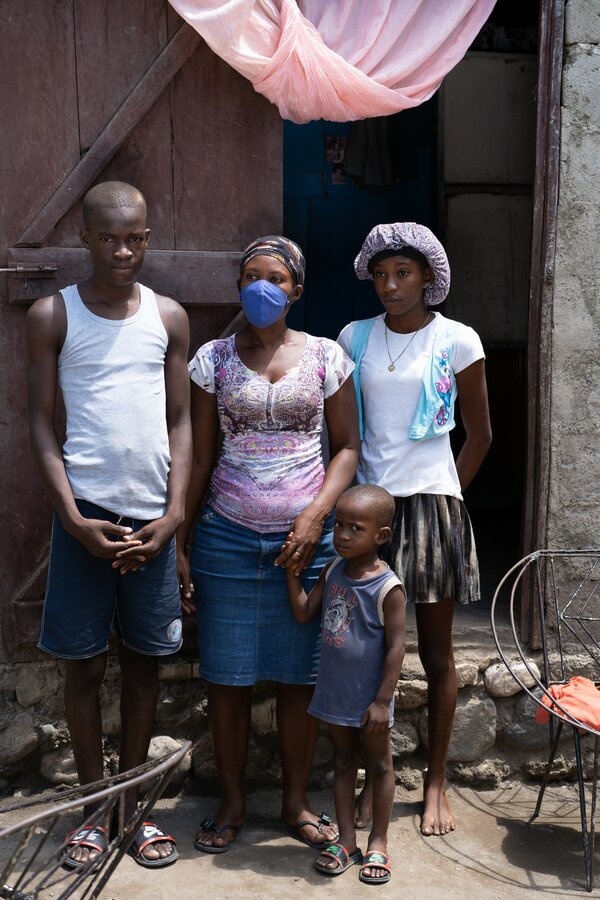
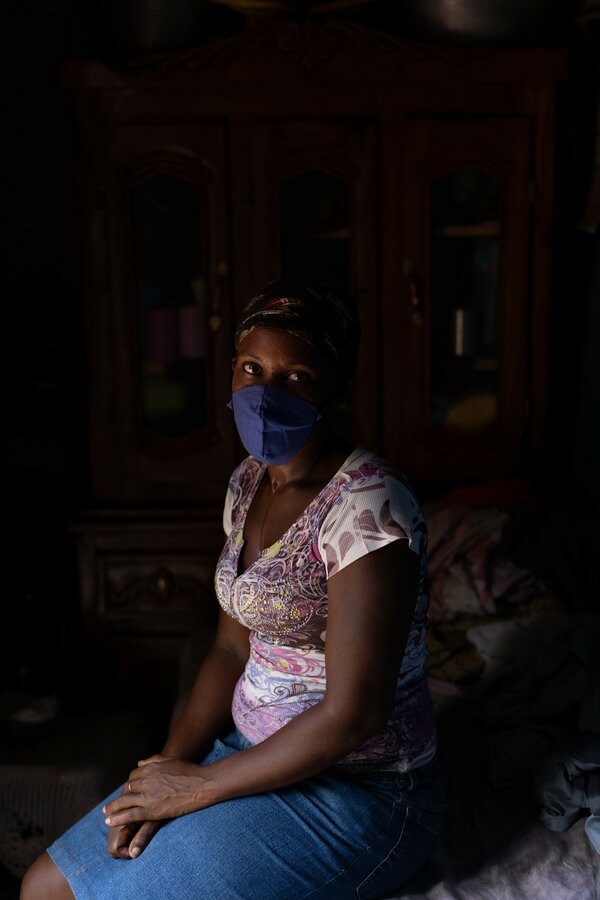
Having grown up as an orphan, Gracelene is concerned her three children, aged 6, 9 and 15, might face the same stressful times she did as a child. Before COVID-related closures, they attended the village's National School where they received a hot meal from WFP every day. Now they are home, and Gracelene has to cook every meal.
"I feel safer knowing that I can take my children to the hospital"
With prices of staple foods rising 25% in one year, it has become expensive to buy at the local market. So Gracelene buys in bulk right after she receives the WFP cash, to get the cheapest price. That way, she tries to put 1,000 gourdes (US$9) aside to buy medicine or afford a trip to the hospital. "With everything that's going on, I feel safer knowing that I can take my children to the hospital."
Irana

When asked how old she is, Irana says she has never known. But she has learned that she was born under President Vincent, who ruled the country between 1930 and 1941 — which means she can't be younger than 80.
Of her four children, Irana has now outlived two. Only one had a job and was able to provide for the family. He passed away three years ago. The two who are still alive have recently been begging in the streets of the village for a little cash to buy food.
Irana says she used to have a small market stall herself, but she is now disabled and has not been able to work for years. She lives with her 13-year-old grandson, who helped her to the distribution site.
Irana will use the US$75 from WFP to buy rice, peas, beans, spinach, and a chicken. She's happy that she will eat meat for the first time in weeks.
Claudette

Claudette is 60 and a mother of three. Jobless, she takes care of her grandson, Cavensley, who lost both of his parents.
‘Some days we'll have meat and rice, many days we won't. I can't let my grandson get used to the better foods'
Worried that cash assistance might stop, Claudette invested in five chickens that will soon be laying eggs. She was also able to buy cooking pots to cook the rice, spinach and meat that she found at the market, and prepare hot meals for her boy.
Asked what her grandson's favorite food is, Claudette says she won't let him have a preference. "Some days we'll have meat and rice, many days we won't. I can't let him get used to the better foods."
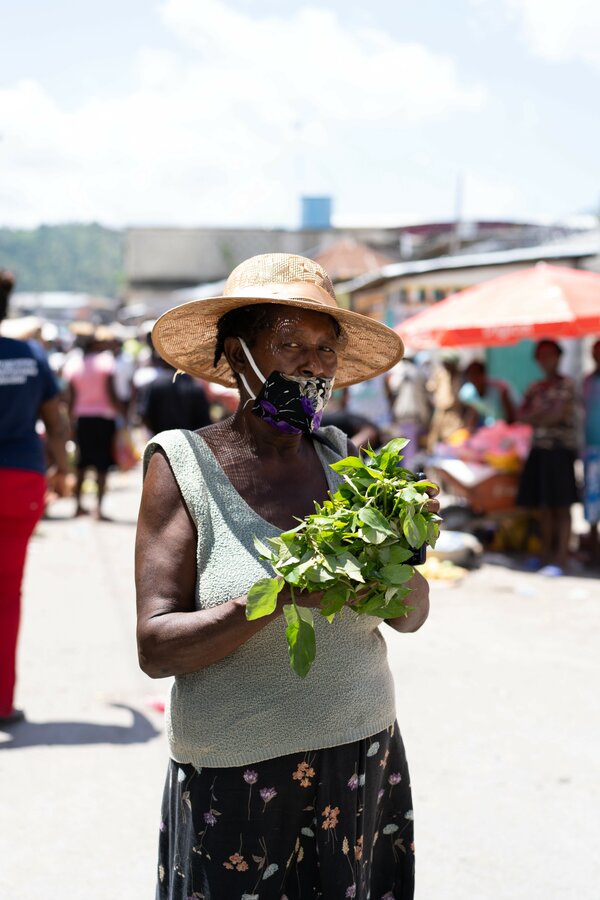
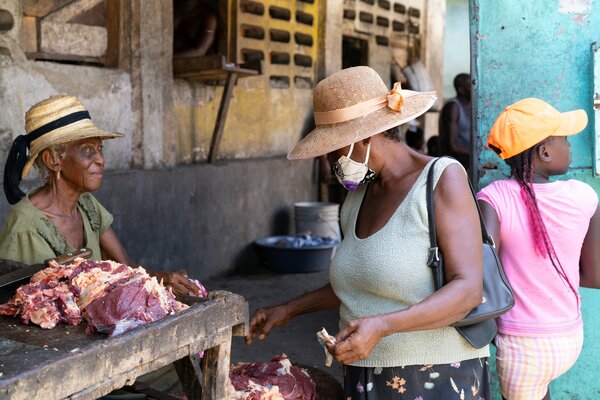
Modeline
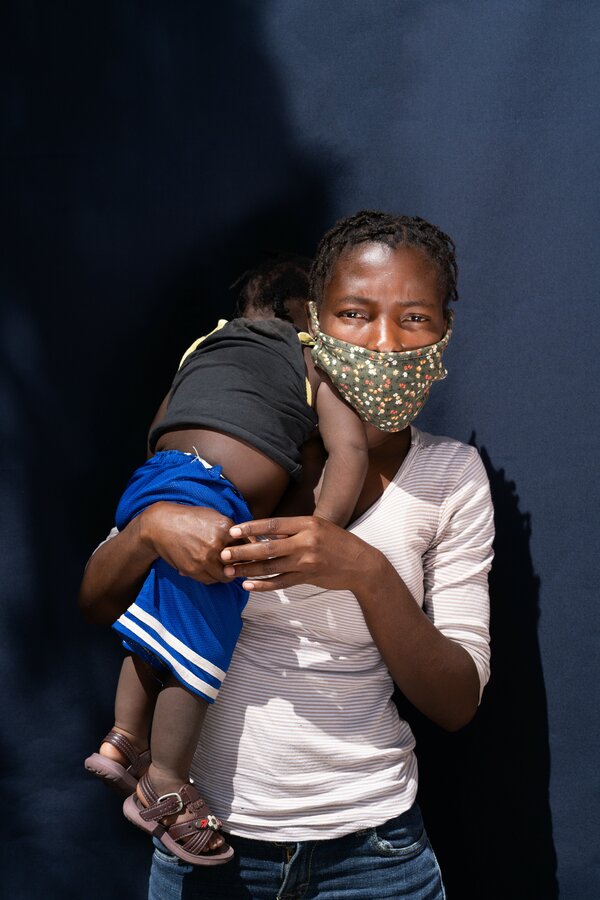
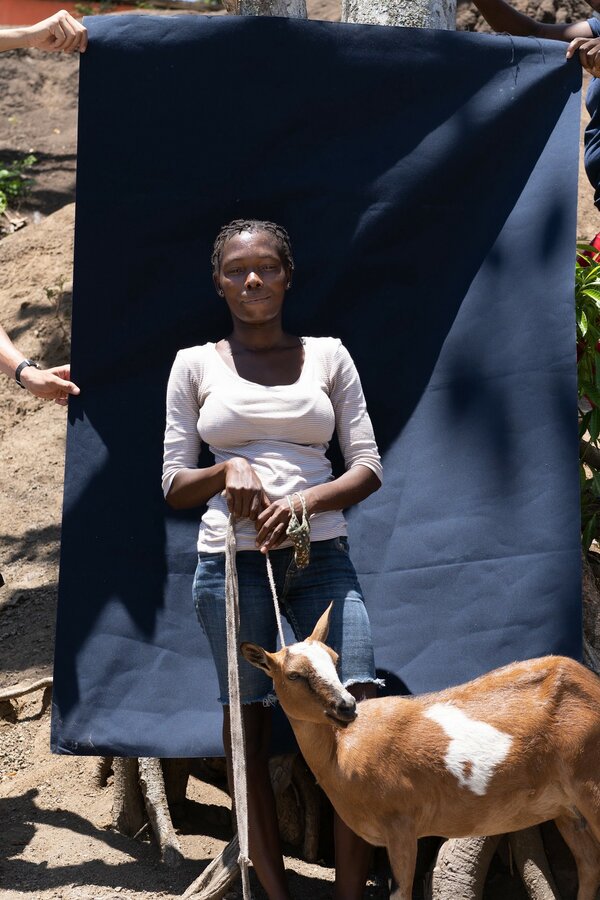
Aged 22, Modeline has three children under the age of 5. In the last few months she says she has been scrambling for food by doing laundry for her neighbours and selling water. She's been very careful with the money she received from WFP and managed to save enough to buy a goat for around US$35. She's hoping that owning a second goat will give her more security.
Lunise
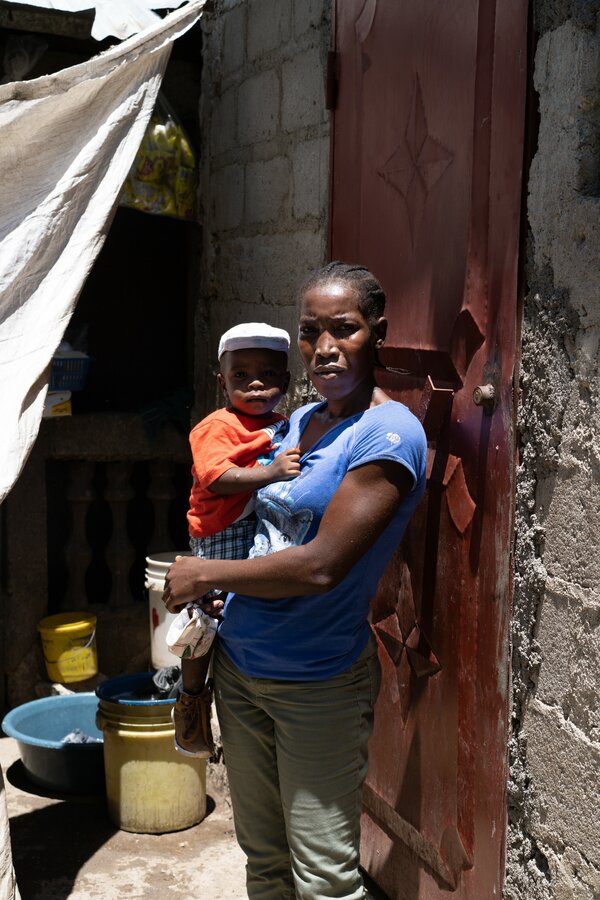
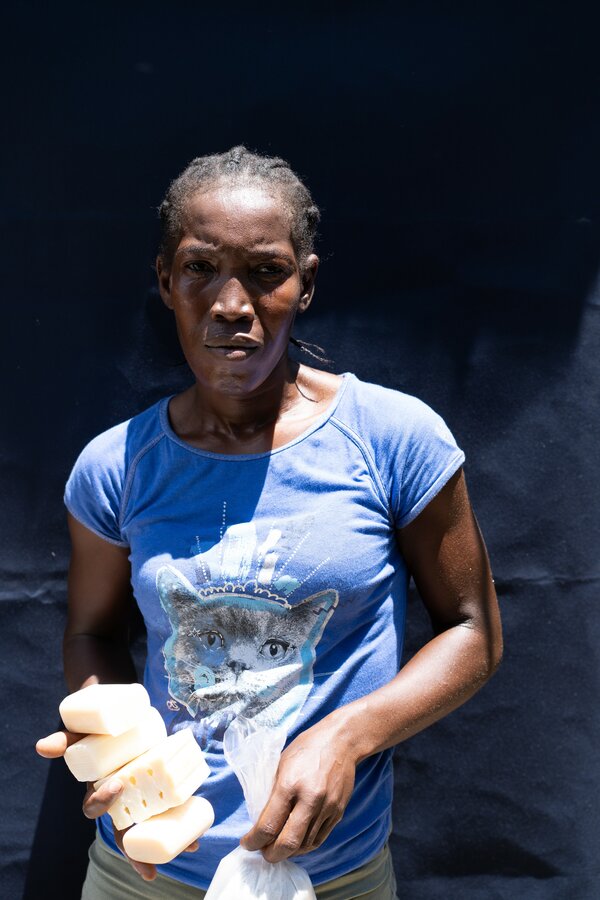
Lunise is 27 and lives alone with her four children. With the WFP cash, she has bought food for the week. But she also bought soaps to keep her hands clean and to supply her small stall of cleaning products, which on a good week may bring her about US$26 in income. "They keep talking about the coronavirus, it's quite scary. I hope we'll have better times," she says. Lunise's ambition is to invest in her small business, eat regularly and not rely on cash assistance to get by.
Lumanie

Lumanie is 75. After the death of her husband, she's been taking care of six children. In spite of her age, Lumanie has to keep a stall at the market selling bananas and plantain — but she has seen fewer and fewer people stop by. Her only son who could support the family works as a moto driver, but he has had fewer passengers, too.
"I could barely afford food, but then I was scared that our roof might collapse"
Because she has had to use the largest part of her modest income to afford food for the family, Lumanie regrets she was forced to let their home deteriorate. "I could barely afford food, then I was scared that our roof might collapse" she says.
The support from WFP has helped her ease that strain. She used US$15 to fill some of the cracks with cement, and now she's sleeping safe.
WFP cash distributions in the North of Haiti are generously funded by the European Union's directorate for Civil Protection and Humanitarian Aid (ECHO).

